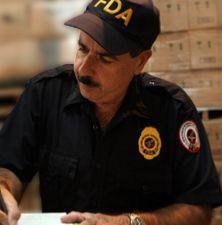
New Food & Drug Administration (FDA) inspection fees threaten to impose extra costs on importers and push up the price of food, according to US import consultancy FDA Imports.
The firm claims FDA's plan to introduce from October 1 re-examination fees for imported food that fails to meet food safety requirements is too broad in its remit, and will hurt most food importers – not just those whose produce is under surveillance for safety breaches.
'At the core of this new process is the requirement that at least two examinations of a food must take place for FDA to assess the new imported food fee,' said FDA Imports CEO Benjamin England in a press release.
Because FDA includes in its 'first examination' definition tasks such as reviewing inspection reports from a third party, and almost any activity related to an FDA import alert, many importers will be stung with the new FDA second inspection fee, Mr England argued.
'Unfortunately for importers, FDA has so broadly defined what constitutes the 'first examination' that virtually every imported food shipment on which FDA spends any resource will be subject to the re-examination fee. US importers, most of them small businesses, will be charged US$224 per hour (plus expenses) for any such re-examination. Those expenses will be passed on to consumers resulting in a dramatic increase in food costs in the USA,' he said.
The FDA – the US government department in charge of protecting public health – announced its plan to introduce imported-food re-examination fees last week.
The move comes under the new US Food Safety Modernization Act (FSMA) passed in January to help improve food safety in the US.
'Examinations from previous entries should not be relevant for determining if an importer must pay a fee,' Mr England said in his statement.



